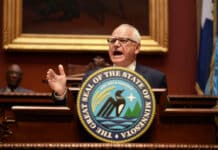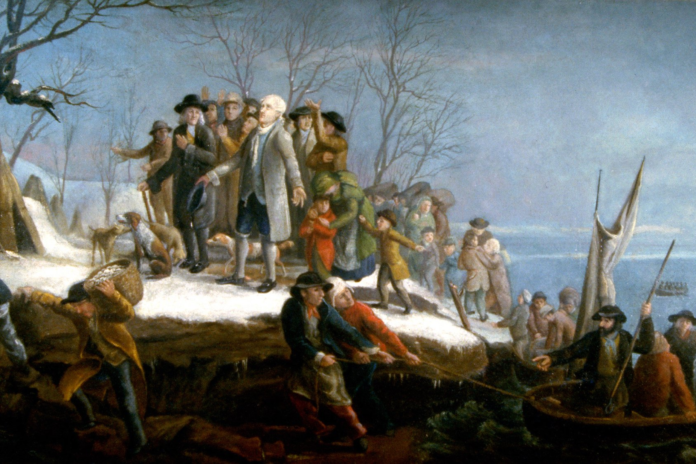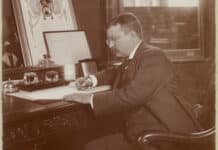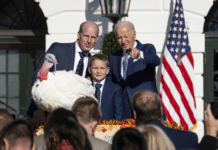Four hundred years ago this week, after being tossed off course by a rough Atlantic sea, the Mayflower’s 102 passengers made landfall at the tip of Cape Cod, far from the Virginia territory where they hoped to settle. It was a setback, but did not weaken the resolve of the Protestant Separatists, who came to create a community with true religious freedom.
After the Pilgrims’ leader, William Bradford, noticed discontent, he sought to keep the group united via the Mayflower Compact, which became the foundational stone of American democracy.
The short document concocted rapidly at Provincetown did not contain laws or governing plans for their new settlement, and yet the compact still established the first government in the New World based on voluntary consent.
Every free man on the ship was invited to sign — including those who were illiterate. The compact was “a civil body politick” with the power to elect leaders and “make just and equal laws, ordinances, acts, constitutions, and offices” for the good of the colony. Though signers professed loyalty to King James, they would rule themselves on their own free will in America, not in London.
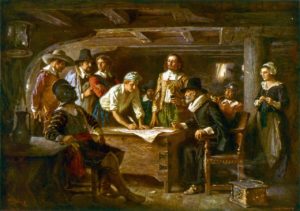
The 200 words underscored that the right of free people to govern themselves came from God, who is mentioned four times in the agreement. They noted their new government was undertaken “solemnly and mutually in the presence of God.”
So, while the Mayflower Compact was religious, it said nothing about a church and was not signed by clergy. It was signed by 41 brave men, almost the same amount who signed the Declaration of Independence.
Despite its brevity, the words somehow encompassed the most important themes of American democracy: that all men are created equal; endowed by their creator with basic rights; and that government derives legitimacy from the consent of the governed.
Nearly two centuries later speaking at Plymouth, Massachusetts, John Quincy Adams claimed the compact was “perhaps, the only instance in human history of that positive, original social compact which speculative philosophers have imagined as the only legitimate source of government.”
The Mayflower Compact stood the test of time, and foreshadowed the foundations for the Declaration of Independence and U.S. Constitution; but their birth was more than 150 years earlier, as an intrepid group stepped ashore in a cold, desolate New World.
As Sen. Tom Cotton opined last weekend, “the story of the Pilgrims is not a myth or a caricature — it’s the living truth of history. What’s more, the faith, bravery and wisdom of the Pilgrims places them in the American pantheon. Alongside the patriots of 1776, the Pilgrims of 1620 deserve the honor of America’s founders.”
Thanksgiving is not solely about the Pilgrims though. What makes Thanksgiving arguably the most cherished American holiday aside from Christmas is the tradition of joining loved ones in a holiday feast.
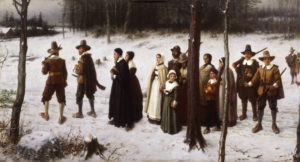
For over 200 years, Americans sit down to turkey, stuffing, cranberry sauce, mashed potatoes, corn casserole, pies, and much more.
The traditional Thanksgiving turkey dinner represents more than just a familiar meal. It symbolizes prosperity, freedom and gratitude.
And at the heart of Thanksgiving rituals is community. The holiday’s essence is not solely the meal; it is the gathering together, no matter the obstacles.
A.J. Kaufman
A.J. Kaufman is an Alpha News columnist. His work has appeared in the Baltimore Sun, Florida Sun-Sentinel, Indianapolis Star, Israel National News, Orange County Register, St. Cloud Times, Star-Tribune, and across AIM Media Midwest and the Internet. Kaufman previously worked as a school teacher and military historian.

